Want to be seen here?
Connect your company to the marketplace for free.
Time for a display campaign? Ocast has gathered thousands of solutions in one place so you can get started quickly. Fill in the form and start receiving offers for campaign proposals.
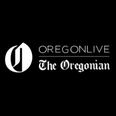
The Oregonian is a daily newspaper based in Portland, Oregon, United States, owned by Advance Publications. It is the oldest continuously published newspaper on the U.S. west coast, founded as a week...
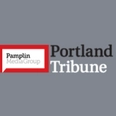
The Portland Tribune is an award-winning community newspaper serving the city of Portland and surrounding areas in Multnomah, Clackamas and Washington counties. The Portland Tribune was established in...

The Portland Business Journal, where you'll find the latest breaking business news, updated throughout the day, this week's top stories from the Portland Business Journal, and other popular features f...
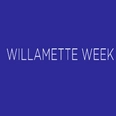
Willamette Week (WW) is an alternative weekly newspaper and a website published in Portland, Oregon, United States, since 1974. It features reports on local news, politics, sports, business, and cultu...
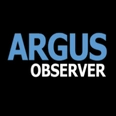
The Argus Observer is the daily newspaper of Ontario, Oregon, United States.The newspaper was established on January 6, 1897, and went through several names and owners before becoming the Argus Observ...

The Albany Democrat-Herald is a daily newspaper published in Albany, Oregon, United States. The paper is owned by the Iowa-based Lee Enterprises, a firm which also owns the daily Corvallis Gazette-Tim...

The Astorian, formerly known as The Daily Astorian, is a newspaper, published in Astoria, Oregon, United States, established in 1873, and in publication continuously since then. The paper serves the A...
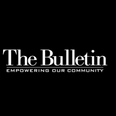
The Bulletin is the daily newspaper of Bend, Oregon, United States. The Bulletin is owned by EO Media Group, which prior to January 2013 was named the East Oregonian Publishing Company. Over the years...

The Corvallis Gazette-Times is a daily newspaper for Corvallis, Benton County, Oregon, United States. The newspaper, along with its sister publication, the Albany Democrat-Herald of neighboring Albany...

The Register-Guard is a daily newspaper in the northwestern United States, published in Eugene, Oregon. It was formed in a 1930 merger of two Eugene papers, the Eugene Daily Guard and the Morning Regi...

Serving the Klamath Basin for more than 100 years, the Herald and News is the premier source of information in Klamath, Lake, Siskiyou and Modoc Counties. Delivering the facts with a personal touch, t...
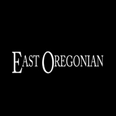
The East Oregonian (EO) is a daily newspaper published in Pendleton, Oregon, United States and covering Umatilla and Morrow counties. The EO was the first-place winner of the Oregon Newspaper Publishe...
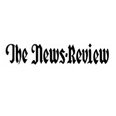
The News-Review is the daily newspaper for Douglas County, a county larger than the state of Connecticut. The county stretches from the Pacific Ocean at Reedsport very nearly to Crater Lake National P...
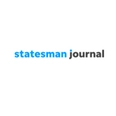
The Statesman Journal is the major daily newspaper published in Salem, Oregon, United States. Founded in 1851 as the Oregon Statesman, it later merged with the Capital Journal to form the current news...
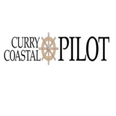
The Curry Coastal Pilot is a general interest newspaper serving the community, Brookings-Harbor, at the southwestern corner of Oregon. Our newspaper publishes once a week on Friday circulating 5,223 p...

The Capital Press is a weekly agricultural newspaper covering the West Coast of the United States, and published in Salem, Oregon. The newspaper covers farming, ranching and agriculture industries in ...

The Tillamook Headlight was founded on June 8, 1888 by C.E. Wilson and editor J.E. Edwards. The first issue was published on a Friday and consisted of eight pages, four of which were filled with local...
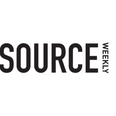
The Source Weekly is a weekly newspaper based in Bend, Ore., covering news, art, music, events, outdoors and other issues of interest to readers in Central Oregon.Our mission: to go deeper into the st...
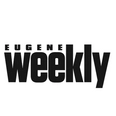
Eugene Weekly is an alternative weekly newspaper published in Eugene, Oregon. The paper, published every Thursday, has a circulation of 39,850. It publishes an annual "Best of Eugene" list, a restau...
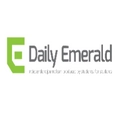
The Emerald has served the University of Oregon with news and information since 1900. Our mission is to train students, serve the UO community and run a financially sustainable nonprofit business.The ...
Display advertising, often referred to as banner advertising, involves visual ads placed on various websites, in contrast to text-based search ads that appear in search results on platforms like Google.
While search ads are focused on direct response, display ads aim at building brand awareness through engaging visual content like images or animations. Display advertising also enables retargeting, where ads are redirected to users who have previously visited your website, helping to keep the brand fresh in mind.
With opportunities to measure campaign performance and customize design and target audience, display advertising offers an attractive strategy for brands looking to enhance their online presence and effectively engage their target audiences.
The most effective formats and sizes for display ads vary depending on the platform and target audience, but here are some popular options:
Leaderboard (728x90 px): Positioned at the top of the page, this ad size captures visitors' attention right away.
Medium Rectangle (300x250 px): This size is flexible and can be placed in sidebars or embedded within content.
Large Rectangle (336x280 px): A larger variant of the Medium Rectangle that offers more visible space.
Wide Skyscraper (160x600 px): Often used in sidebars, offering a long, vertical ad space.
Mobile Leaderboard (320x50 px): Optimized for mobile devices and often placed at the top or bottom of the screen.
Consider adhering to industry standards and adapting ad format and size to the specific platform and your target audience. However, the emphasis should be on having well-thought-out content that engages and is relevant to your target audience with clear "Call to Actions" (CTA) to encourage clicks and conversions.
Measuring the effectiveness of your display advertising campaigns is crucial for evaluating the results of your campaign and for fine-tuning future marketing strategies. A first step could be to look over the Click-Through Rate (CTR), which represents the number of clicks your ad receives per view, providing an indication of the ad's engagement level. It is also important to track the conversion rate, which shows how many clicks are converted into desired actions such as sales or leads. Cost Per Conversion is another key indicator that helps you understand the cost-effectiveness of your campaign.
It may also be good to look at the impression rate, that is, how many times the ad has actually reached out and been displayed for brand-building purposes.
One of the major advantages of this type of advertising is its ability for audience targeting, where ads can be directed based on demographics, behavior, and retargeting, enabling a more personalized advertising experience. Moreover, with the use of various analytical tools, it becomes easy to track and measure the campaign's effectiveness by observing data on clicks, conversions, and views, which provides valuable insights.
However, display advertising also has its downsides. Ad blocking is one of the major challenges, where users can choose to block display ads, which in turn reduces the reach and effectiveness of your campaign. Ad fatigue is another downside, where ads that are shown too often can become irritating for the users, leading to decreased engagement and negative brand associations. Despite the ability for audience targeting, audience dilution can be a challenge if precise targeting is not used, which potentially leads to wasted marketing expenses. Additionally, the cost of display advertising can become significant, especially if the campaign is not well optimized to achieve desired results.
The cost of display advertising can vary based on several factors such as website, ad format, and target audience. Besides that, there are different pricing structures one can base on to adjust the cost according to the goal at hand. Below we list different pricing options for display advertising.
CPM (Cost Per Mille or Cost Per Thousand Impressions):
The price for 1000 views of your ad.
Often used for campaigns aimed at increasing brand awareness.
CPC (Cost Per Click):
The price you pay for each click your ad receives.
Used when the goal is to drive traffic to a website or increase interaction.
CPA (Cost Per Acquisition or Cost Per Action):
The price for each specific action or execution, such as a purchase or lead generation, that arises via your ad.
Used when the goal is conversions rather than just views or clicks.
CPL (Cost Per Lead):
The price for each lead generated through your ad.
Used in B2B marketing or for products/services with longer sales cycles.
CPV (Cost Per View):
The price for each viewing of a video ad.
Often used for video-based advertising campaigns.
Each pricing structure suits different goals and campaign types, and choosing the right pricing structure can help maximize the ROI for your display campaign.
Connect your company to the marketplace for free.
No commitments.